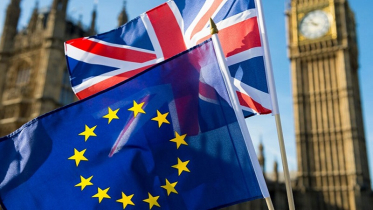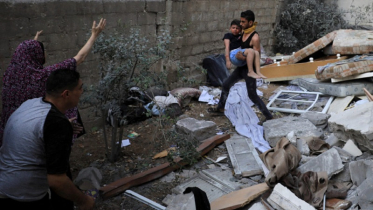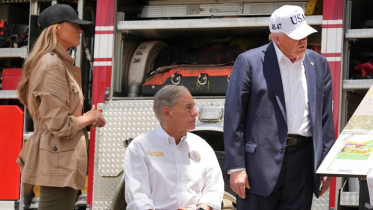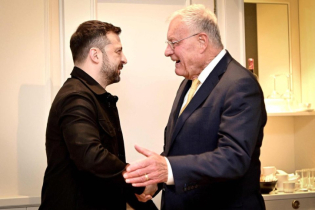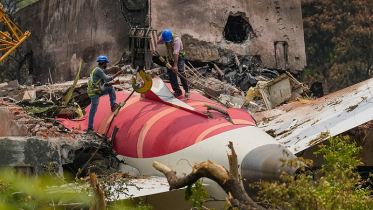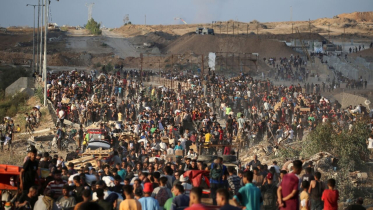Resumption of U.S. Military Aid to Ukraine Amid Renewed Russian Aerial Campaign
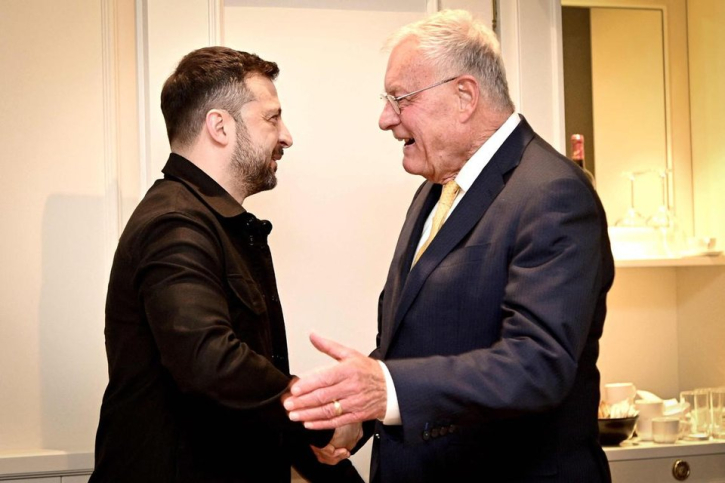
Published : 18:17, 12 July 2025
The United States has resumed military supplies to Ukraine following a temporary suspension of critical weapon deliveries, Ukrainian President Volodymyr Zelensky confirmed.
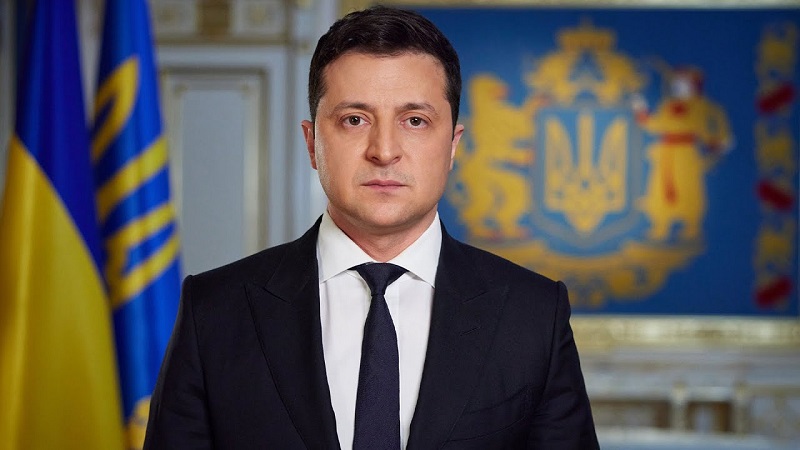
The resumption comes at a pivotal time, as Russia has significantly intensified its aerial offensive, resulting in a record number of civilian casualties and unprecedented drone and missile attacks on Ukrainian territory.
U.S. President Donald Trump announced that Washington had brokered an agreement with the North Atlantic Treaty Organization (NATO) for the provision of Patriot air defense systems to Ukraine.
Under the arrangement, NATO will acquire Patriot systems from the United States and redistribute them to Kyiv, with the alliance covering the full cost of the purchase. The deal follows President Zelensky’s urgent request for ten Patriot batteries in response to the escalating Russian missile and drone assaults.
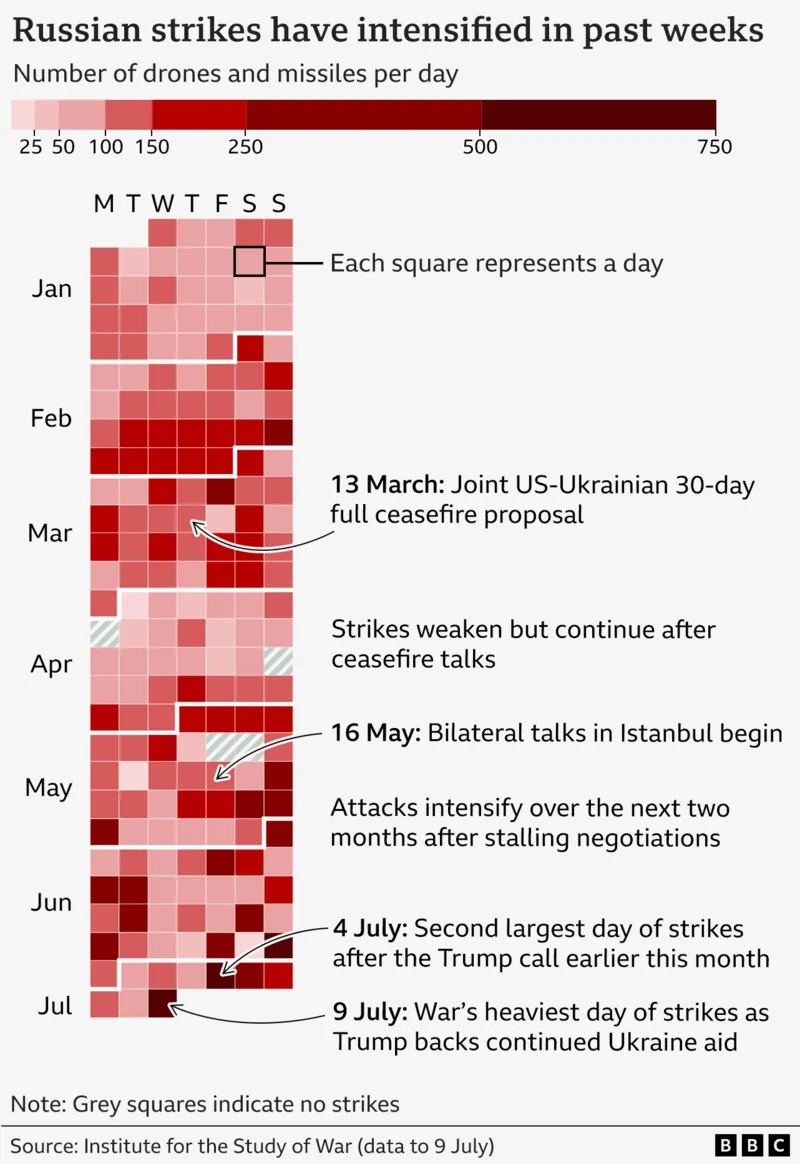
Patriot air defense systems, widely regarded as among the most advanced globally, play a vital role in Ukraine’s multi-layered air defense architecture, which also includes Soviet-era S-300 systems and the U.S.-Norwegian Nasams.
The Patriots’ high interception rates and sophisticated radar tracking capabilities have been critical in shielding urban areas and strategic infrastructure from high-precision Russian cruise and ballistic missiles.
In recent weeks, Russian aerial bombardments have reached record levels, with Ukraine reportedly enduring 728 drone strikes in a single night.
Ukrainian intelligence has warned that Russia may aim to increase that figure to 1,000 per night. Civilian casualties have surged as a result, with the United Nations recording June 2025 as the deadliest month in three years—reporting at least 232 civilian deaths and over 1,300 injuries.
The renewed U.S. support includes refurbished Patriot systems, including a battery previously stationed in Israel. While the system was reportedly transferred to the U.S. months ago, it had not yet been delivered to Ukraine due to logistical and technical procedures.
U.S. Secretary of State Marco Rubio indicated that negotiations had intensified, and that allies such as Germany and Spain were encouraged to contribute Patriot systems from their own inventories for expedited deployment to Ukraine.
Germany has agreed to fund two batteries, and Norway one, with additional European nations pledging to contribute as part of a broader "European defense package" announced by Zelensky.
Rubio also disclosed that discussions had taken place with Russian Foreign Minister Sergei Lavrov during a diplomatic meeting in Malaysia. He acknowledged shared frustrations, particularly on the lack of progress in achieving a negotiated settlement to the ongoing conflict. These discussions, according to Rubio, included new proposals aimed at resolving the war, which will be presented to President Trump. Trump, in turn, announced his intention to deliver a “major statement” regarding Russia and the Ukraine conflict on Monday.
Despite previous efforts by the Biden administration to maintain consistent military assistance to Kyiv, President Trump, since his return to office in January 2025, has sought to recalibrate U.S. engagement by encouraging greater burden-sharing among NATO allies. Between 2022 and the end of 2024, the U.S. contributed approximately $69 billion in military aid to Ukraine, making it the single largest donor.
Trump has since emphasised the importance of NATO member states meeting their commitments to allocate at least 2% of their GDP to defence spending.
The reactivation of American arms transfers marks a strategic turning point, as Ukraine faces an increasingly aggressive aerial threat and seeks to reinforce its defensive capabilities amid a protracted war.
While Ukraine continues to rely heavily on Western support, the latest developments underscore a shifting dynamic in the international response to the conflict and growing urgency for diplomatic solutions.
Source: BBC News, The New York Times, United Nations.
BD/O




